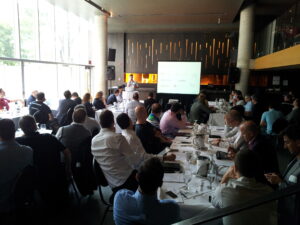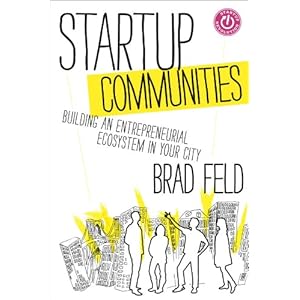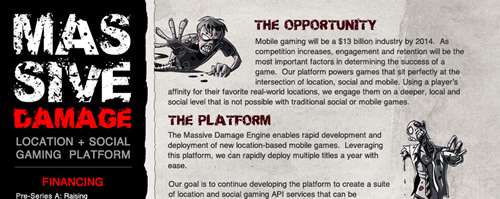 This post is recap on some of the highlights from a how-to created by Ilya Lichtenstein of mixrank.com. I feature some of the most impressive startup strategies we encounter at StartupPlays and share them free, here at StartupNorth.ca. Enjoy.
This post is recap on some of the highlights from a how-to created by Ilya Lichtenstein of mixrank.com. I feature some of the most impressive startup strategies we encounter at StartupPlays and share them free, here at StartupNorth.ca. Enjoy.
We recently did some work with a brilliant young guy named Ilya Lichtenstein from Mixrank.com, a company which has seen early investments from 500 Startups, Y-Combinator, and Mark Cuban. While in college Ilya was working side jobs with startups and getting deep into the affiliate marketing world. He grew a $300 investment into six figure revenue numbers in his first year. He has applied the behaviours and characteristics of major affiliate programs and adapted them to smaller scale customer referral programs for startups, this is his “best practice manual for building a customer referral program”:
Major Affiliate Programs
Websites like Amazon and Netflix have elaborate affiliate networks anyone can join and receive an affiliated commission from a signup or purchase on their websites. This works because these companies have determined some of their most important baseline metrics, things like:
- Cost per acquisition of a customer
- Lifetime value of a customer
- On page conversion rate
- Variants between traffic sources
- Cost of buying traffic within the industry
How Building your Referral Engine is Different
A customer referral engine is a lot like an affiliate program only scaled down and involves much higher participant engagement. Building a referral program is not for the light of heart but has massive payouts for everyone involved. When creating a referral engine you won’t want to label participants “Affiliates”, but instead something like “Partners”. Your “Partners” will be composed of two segments:
- Existing Users
- Content Producers within your Niche
Existing users are easy advocates since they’re already familiar with your brand and understand your offering. Incentivizing them to tell others what they may already be telling people is a win-win.
Content Producers within your niche have clout and often an engaged audience on the web, they may even be looking to monetize their content and this provides them with a non traditional medium that has higher revenue potential and that sucks a lot less than one site ads.
Compensating your Partners
As an early stage startup your base metrics probably wont warrant a direct flat fee compensation for a new lead, you’ll be compensating partners in your referral program based on a percentage of or flat fee per paid conversion. Be careful to avoid revenue share in perpetuity, this may hurt you down the road when approaching investors. Major Affiliate programs will payout anywhere from $30-$40 for a credit card submit on their site (this is what you’re aiming for). If you have the ability to set up coupon codes on your website, give your partners a custom coupon code, this instantly creates a value add for their audience and makes it easier for them to share with people they know. (People LOVE sharing deals)
- You’re an e-commerce vendor: Give partners a commission on each sale they drive.
- You’re a SaaS vendor: Give partners straight cash per transaction, if your offering is tiered your affiliate commission can be as well.
When you setup an affiliate program you are effectively sharing the risk and the reward.
If your sales funnel is: visit page -> email submit -> purchase
You can compensate affiliates for either the page visit, the email submit, or the purchase. You will need to compensate the affiliate more for actions that are further into the funnel, as you are placing the risk on the affiliate to convert the user. If you compensate them at the start of the funnel, you can pay them less and the risk is on your side to convert them.
You will need to determine the right risk / reward ratio to determine which action will be most profitable – and attractive – for both you and the affiliate.
Tracking Referrals
You need to use a third party to track referrals, this guarantees no foul play on your side ands building confidence in your program into your program. It also helps limit fraudulent activity, you can review partners as they apply, and send payouts once customer payment has been confirmed on your end.
Here are some third party services you can use to set up a program like this:
- Zferral – I prefer Zferral to others because of its ease of use, and support. If you’re having issues with setting up you can use their support centre to screencast your issue and have it resolved within a few hours.
- HasOffers – Custom referral programs, easy setup.
- LinkTrust – This is a costly alternative, but is the undisputed gold standard within the industry.
White Glove the Entire Program
Send your partners a monthly recap, keep them updated on how other partners are doing, and how the program is a smashing success! It will keep them involved and give them a benchmark for how well they can do, and how much money they can make by being part of your program.
The customer referral engine is a win-win channel for driving online sales generally untouched by most early stage startups. If you have a startup that could benefit from a referral program, talk to us in the comments!
photo credit – armando cuéllar








